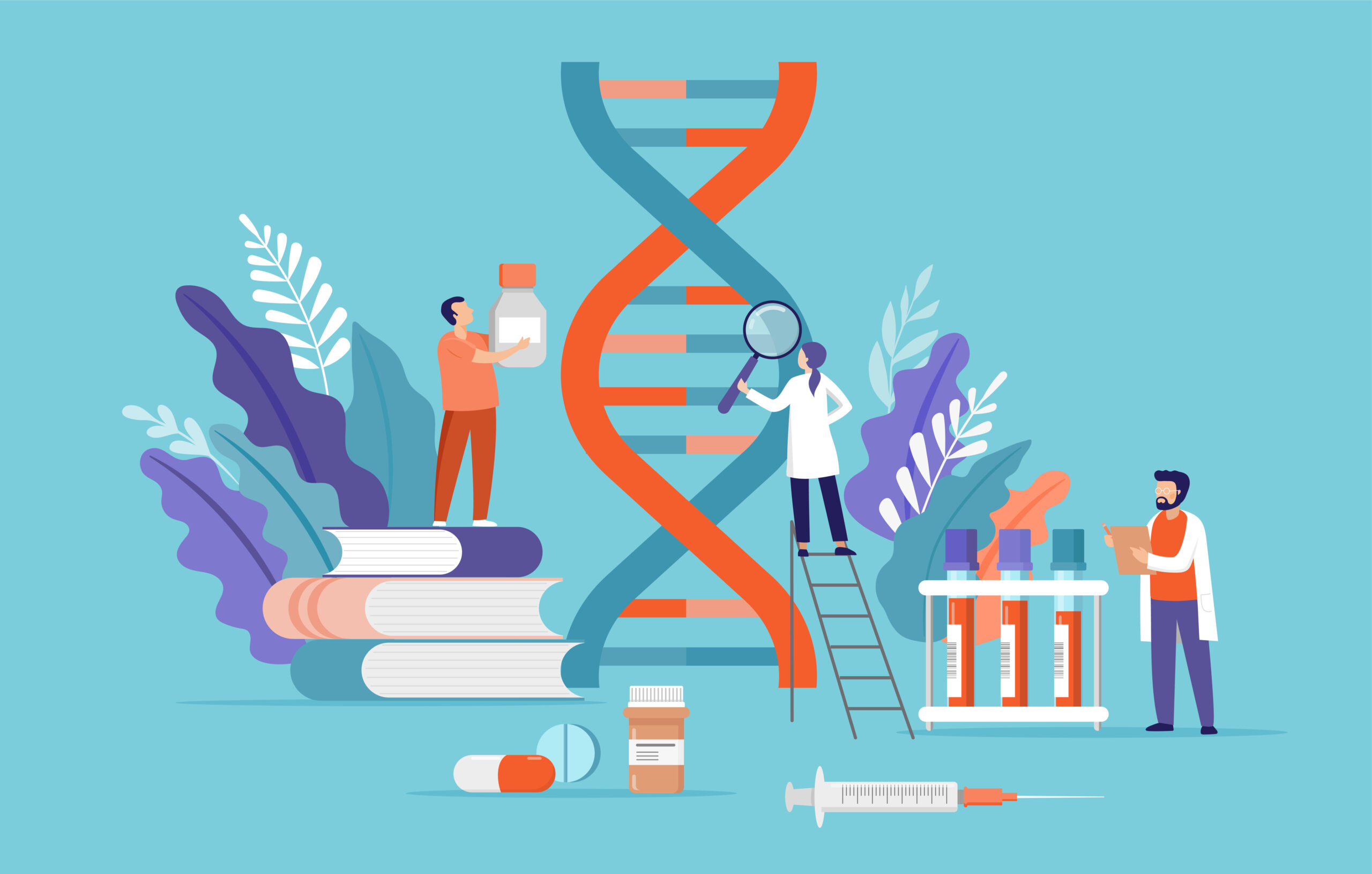New associations between blood biomarkers and diseases have been uncovered in the world’s largest study on metabolism-related genetic factors.
Dr. Yuri Milaneschi and prof. dr. Brenda Penninx have co-authored this paper on new associations between blood biomarkers and diseases in the world’s largest study on metabolism-related genetic factors. March 6th the article was published in Nature.
An international study has uncovered a wealth of associations between biomarkers in blood and diseases. The study has successfully identified and catalogued over 400 genomic regions that have a profound impact on metabolic regulation. Almost half of these findings are novel. The results were published in a paper in Nature entitled “Genome-wide characterization of circulating metabolic biomarkers”.
According to the study, a significant number of the genomic regions associated with metabolism are also connected to the likelihood of developing different illnesses and offer valuable insights into the biological pathways that connect blood markers with diseases. The key findings of the study are available to the scientific community and serve as a valuable resource for follow-up, including medication development and the explanation of causal relationships between metabolic biomarkers and diseases.
The study included 136,000 volunteers from 33 population datasets. The participants were from South Asian, East Asian, European and African ancestries, but comprised mainly Europeans, among them many Dutch participants from the Netherlands Biobanking and BioMedical Research Infrastructure (BBMRI.nl). BBMRI.nl is a collaboration between biobanks across the Netherlands, including the Netherlands Twin Register (VU Amsterdam) and the Netherlands Study of Depression and Anxiety (NESDA) (Amsterdam UMC). Additional data from the UK Biobank allowed for confirmatory analyses in a group of 120,000 participants.
The researchers investigated the association of 233 metabolic biomarkers measured in blood with over 13 million genetic variants. By utilizing innovative metabolic analyses with nuclear magnetic resonance (NMR) spectroscopy, the study extracted over 200 biomarkers related to metabolism from a single blood sample. Because of its cost-effectiveness, this method is well-suited for analysing large population datasets. “This study shows the power and importance of large-scale collaborations between biobanks as we have in the Netherlands and which is extending worldwide”, says professor Dorret Boomsma from VU Amsterdam.
“The results of this study represent an invaluable resource for the scientific community, as this data could be leveraged in future research clarifying the role of metabolic processes in various somatic and mental health outcomes.” says dr. Yuri Milaneschi
One of the principal researchers, adjunct professor Minna Karjalainen from the University of Oulu in Finland, states, “We gained an extensive understanding of the biology behind the heritable components of human metabolism and their correlations with diseases”. For instance, the study investigated the metabolic effects of the genetic factors that predispose women to liver disorder during pregnancy, which is found in about one in a hundred pregnancies. Symptoms usually arise in the third trimester, characterized by itchiness without a rash, and can cause complications for both mother and foetus.




